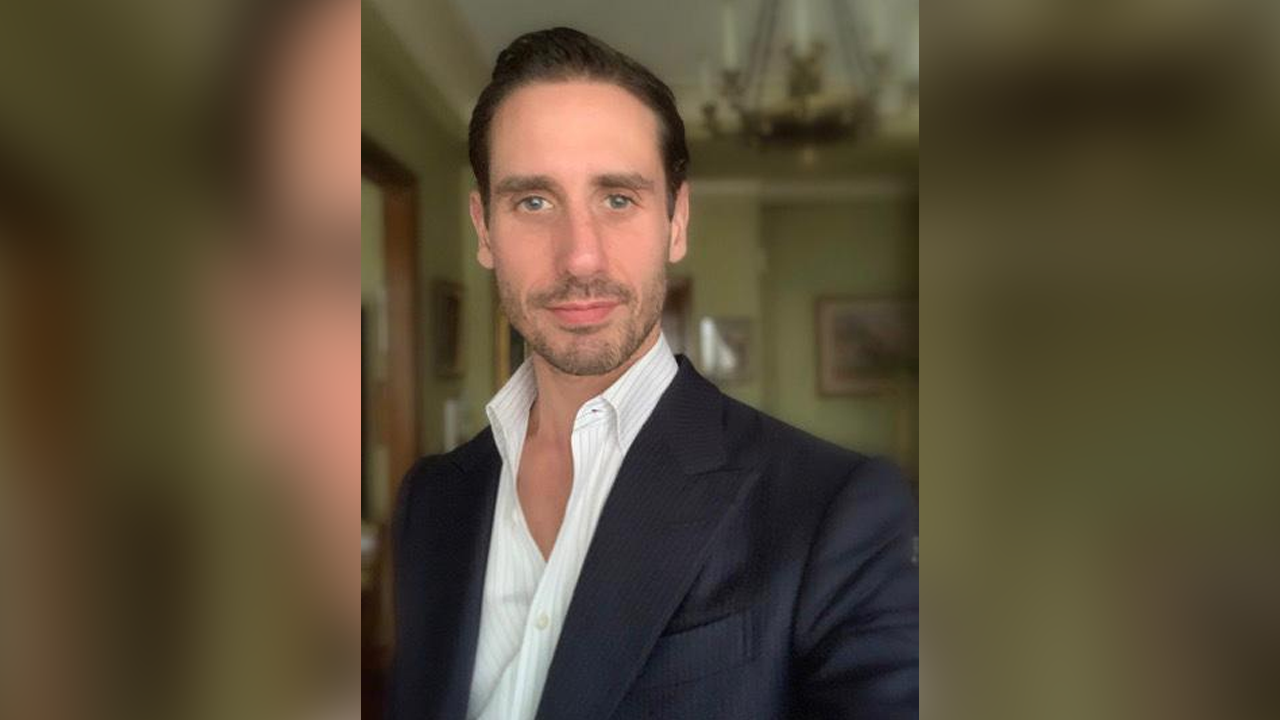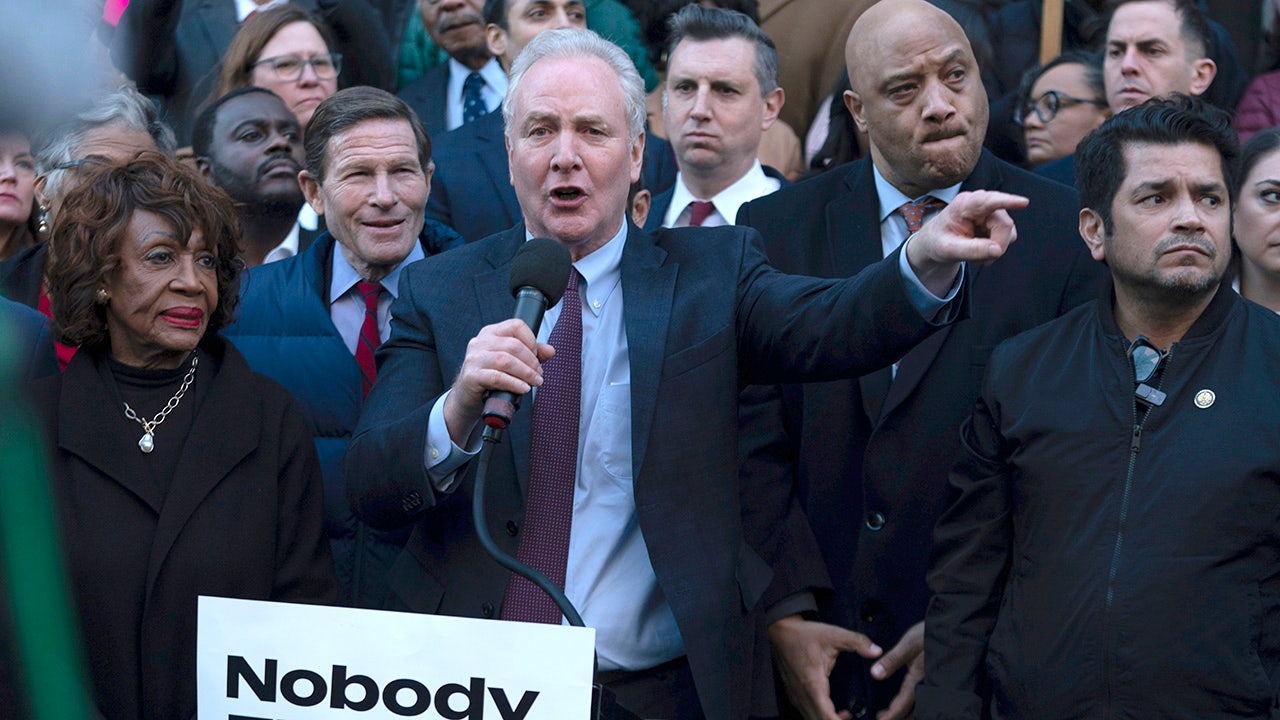Mandy Moen’s children didn’t get Christmas presents this year, but their family tried to make the best of the situation. They fastened a long string of beads to the wall in the shape of a Douglas fir, and thumbtacked ornaments to the living room drywall, including a miniature plastic TV set, a plush cardinal, and an iridescent green pickle. They even created a fake fireplace out of paper bags. “We’re pretty creative,” says Moen, whose name has been changed to protect her family’s safety.
Even if her kids had gotten presents, Moen says they would have just been forced to get rid of them anyway. Their family began preparing to leave the United States following Donald Trump’s win in the presidential election, which Moen says made her fearful for her children’s futures. Since he took office, Trump has issued a flurry of executive orders following through on his campaign promises to target trans Americans. Among them, he has signed orders targeting gender-affirming healthcare for trans youth, banning trans people from serving openly in the U.S. military, defining gender as binary and assigned at birth, and threatening schools that support trans youth with the loss of federal funding. Like many parents of trans youth now scrambling to protect their children, Moen could sense that the worst-case scenario was imminent.
“I just sat and cried,” Moen says of election night. “There’s just too much hate in the world. There’s no reason for it. No one’s hurting anyone by being who they are.”
After the shock wore off, Moen decided that the only way to keep her kids safe was to leave the country as soon as possible. Initially, she had planned on putting her three children and four cats in an RV and driving across the border to Canada, where she would claim asylum. Moen had joined a Facebook group in Montreal where locals offered to give them a place to stay for a week or two while they got settled — or even let them park their camper in the driveway for a place to sleep. But claiming asylum in the country is extremely difficult to begin with, and fearing she wouldn’t be able to learn French well enough to obtain a work visa through potential employers, the family instead decided upon Scotland, which was rated Europe’s most LGBTQ+ friendly country in a 2016 report from the advocacy group ILGA-Europe.
Editor’s picks
Moen has booked plane tickets for later this month, and she has been selling their belongings for weeks. Each child is only allowed to take one suitcase and a single box of personal possessions with them — forcing Denise, aged nine, to part with her favorite dollhouse and Reese, eight, his cherished toy cars. “I don’t want to move,” says Denise, who notes that she will also be leaving behind friends she’s known most of her life. “It’s going to be stressful.”
“Our kids aren’t allowed to be who they are. We have to just pick up and go.”
The Moens are just one of many families of trans youth fleeing the U.S. in fear of what a second Trump presidency might mean for their lives. The worst could still be yet to come: While campaigning for the White House, Trump’s 2024 website stated, if reelected, he would urge Congress to pass a federal law “prohibiting child sexual mutilation in all 50 states.” And just days after its issuance, the president’s gender-affirming care order is already having a major chilling effect on doctors and medical providers. Hospitals in Colorado, New York, and Virginia have said that they will temporarily pause transition care for minors while they weigh the implications of Trump’s edict, although New York Attorney General Letitia James has directed providers in the state to continue treating trans youth patients.
Even before Trump took office, the federal government already hinted at what could be to come. In December, the U.S. House of Representatives instituted an anti-trans bathroom rule targeting freshman lawmaker Sarah McBride (D-Del.), the nation’s first out trans member of Congress, and President Joe Biden signed into law a must-pass defense bill with a provision stripping away coverage for trans youth health care under TRICARE, the military’s insurance plan. Under the latter move, the children of active duty service members would no longer be able to receive gender-affirming medical care, making it the first explicitly anti-LGBTQ+ law adopted by the U.S. government since “Don’t Ask, Don’t Tell” in 1993.
But families hoping to escape the long shadow of Trump’s policies may experience extreme challenges in getting to safety. Many countries are tightening their requirements for immigration and asylum, including countries historically viewed as favorable to refugees. Fifteen member countries, including Denmark, Finland, and Italy, drafted a letter in May 2024 asking European Union leaders to restrict the ability of refugees to seek asylum, just months after the bloc approved new rules that could indefinitely jail asylum seekers, including children. The letter advises that asylum seekers be sent to a “third country” while their asylum claims are processed — similar to policies that the Trump administration is itself exploring — and urges expedited deportment of refugees whose claims are refused.
Related Content
The Moens will likely face these barriers themselves in Scotland, which is under the U.K.’s purview on immigration. The number of student visa applications reportedly plummeted after the U.K. implemented new rules barring international undergraduate and master’s students from bringing their dependents with them. Although Moen floated the idea of going back to school in Scotland to finish her nursing degree, her visa would not cover her children unless she sought a doctorate. She has already begun putting in applications to healthcare companies that would potentially grant her a work visa if she were to be offered a position. If she is unable to find employment, Moen plans to file an asylum claim.
Moen knows that moving is a huge risk, but it’s one she feels they have been forced to take. “It seems like that’s become the reality of people with queer family members, trans kids, or trans spouses,” she says. “And that’s become our life now: moving to protect ourselves or leaving and going somewhere else. We’re not allowed to have regular lives anymore. Our kids aren’t allowed to be who they are. We have to just pick up and go.”
A growing number of trans migrants
While there is no hard data on the number of LGBTQ+ families seeking to leave the U.S. following Trump’s win, experts tell Rolling Stone there are unprecedented levels of interest from trans people and their loved ones. Jessica Drucker, the founder of Rainbow Relocation Strategies, which assists LGBTQ+ people in moving abroad, says that she received five times the typical number of requests for consultations in the month following the election. The average post in a private Facebook group she runs for queer expatriates and aspiring émigrés now receives as many 4,500 comments in an hour; before the election, traffic to the page was modest. Aleks Dughman-Manzur, co-executive director of the Vancouver-based nonprofit Rainbow Refugee, says that the eight Canadian organizations focused on immigrants and asylum seekers in his network received over 800 inquiries from the U.S. the day after the election.
The influx of requests was particularly dramatic for Rainbow Railroad, which is perhaps the most widely known nonprofit in the world focused on helping LGBTQ+ people flee unsafe countries. The organization received almost 1,117 requests for help from the U.S. in the day after the election — more contacts than it had received from Americans over an entire year. At least 51 percent of those requests were from trans people seeking to leave the U.S., and the majority sought direct aid with international relocation, the group reports.
“It’s the most requests for help we’ve ever received from a country in one day,” says Catherine Hampton, the senior advisor for U.S. strategy at Rainbow Railroad. “Even at the height of the Afghanistan crisis, when the Taliban were taking over in August 2021, the highest daily number of requests that we received from Afghanistan was 119.”
Although Canada is a popular destination for U.S. families of trans youth hoping to claim asylum abroad, prospective refugees may run into several roadblocks. Swathi Sekhar, director of protection initiatives at Rainbow Railroad, says that Canada’s immigration system is “very limited in scope” and predominantly functions as a “measure of last resort.” To present an asylum case, individuals will need to demonstrate that they have “exhausted absolutely all avenues for protection” in their countries of origin, Sekhar adds. If Canadian immigration officials allege that parents with trans kids have the choice of simply moving to a more progressive state for safety — even though there’s no guarantee anywhere in the U.S. is safe for them under Trump — it could, thus, impede a potential asylum claim.
“There are so many people who face very real persecution that just don’t meet that restrictive legal definition,” Sekhar says. “People who are fleeing a situation of generalized conflict may not actually qualify as a refugee, even though they are. Their lives are at risk, and they can’t live with dignity. It’s a really high standard that a lot of people can’t meet.”
“People who are fleeing a situation of generalized conflict may not actually qualify as a refugee, even though they are. Their lives are at risk, and they can’t live with dignity.
Canada has a mixed track record on granting asylum from the U.S. on the basis of trans identity. The country is bound by the Safe Third Country Agreement, which bars individuals from the U.S. from claiming asylum at the border. Although Rainbow Refugee said that refugees who initially entered the country on tourist visas had recently experienced “positive” outcomes in their claims, Canada’s Federal Court in February 2024 overturned a decision from the Refugee Appeal Division granting asylum to Daria Bloodworth, a trans American who fled after being stalked and threatened by a former roommate. Judge Christine Pallotta claimed that Bloodworth had not “demonstrated with clear and convincing evidence” that, prior to her entry into Canada, she had explored every “course of action reasonably available to her, without success.”
Regarding a possible influx in refugee claims under Trump, Canada’s immigration minister, Marc Miller, claims that the country has not yet seen a surge in asylum. He has said, however, that Canada has begun preparing for the impact of Trump’s executive orders, including those calling for the mass deportation of undocumented workers. “Canada will be firm and fair,” he told CBC News. “We absolutely won’t be cruel.”
However, families of trans youth do not only have the option of applying for refugee status. As a consultant, Drucker often advises clients to seek out countries that offer digital nomad visas, which permit remote workers to remain for a certain period of time. Among the most sought-after nations, she says, are Spain, Portugal, Malta, Uruguay, and Thailand, but these applications often include burdensome income and residency requirements. While Mexico allows individuals to stay for up to four years on a digital nomad visa, Moen’s family would not be eligible: As a single mother with three children, she would need to make more than $5,100 a month to qualify. Those requirements are fairly standard.
Other options for families with trans children include applying as skilled migrants or seeking student visas, each of which come with their own significant hurdles. After Trump’s reelection, Margaret Anderson, whose name has also been changed for her safety, pulled her 21-year-old trans daughter, Jane, out of community college in Texas; she is working on transferring her to a university in France where she can finish her education safely. Jane is currently enrolled in an intensive language course to ensure that she is fluent enough before the fall. Meanwhile, Anderson and her husband are preparing for all that moving their daughter overseas will entail: securing passports, finding an apartment abroad, and making sure that she meets every application deadline. Because her family members won’t be going with her, the reality is that Jane will very soon be in a foreign country, alone, that she has never even visited.
Having watched their home state repeatedly target families like hers, Anderson feels they have no choice but to act quickly because she knows how bad things can get. In February 2022, Republican Gov. Greg Abbott issued an executive order directing the Texas Department of Family and Protective Services (DFPS) to investigate parents of trans youth for child abuse. Texas passed a trans youth medical care ban the last time its legislature met in 2023, and Anderson worries that the coming session could bring a sweeping bathroom ban or health care restrictions for trans adults. She and her husband had initially planned on moving their daughter to California, but under Trump, Jane’s parents feel they must get her as far away as possible.
“Some people may read this and think, ‘Look at these people. They can move their child to France, and they’re complaining about it,’” says Anderson. “But she wouldn’t be doing this if she didn’t have to. There are sacrifices on her part to leave friends and family that she loves. Every space I walk into, I just want to scream. I’m in so much pain. I feel like my left arm has been cut off. I just am screaming with grief.”
The reality of leaving
The reality is that most families with trans children will not be able to leave the U.S., even if they wanted to. In addition to the expense of fleeing the country, the Trump administration has begun refusing all gender marker corrections on U.S. passports following the issuance of an executive order also barring “X” gender markers. In a January memo, Secretary of State Marco Rubio stated that all passports issued by the State Department must henceforth “reflect the holder’s sex.” That could lead to complications for families who do not already have corrected documentation for their children, potentially impeding their ability to leave the country.
Cathryn Oakley, senior director of legal policy for the Human Rights Campaign (HRC), says that few of the families within the national LGBTQ+ advocacy group’s networks have discussed moving abroad as a result of the election. That’s because, she says, the families who are the “most vulnerable” under a second Trump presidency “are the people that won’t be able to leave.” While the coming four years will be challenging, Oakley stresses that even a hostile administration can’t undo decades of gains won by the equality movement overnight. A major protection for the LGBTQ+ community under Trump will be the U.S. Supreme Court’s groundbreaking 2020 ruling finding that federal workplace laws barring discrimination also apply to queer and trans employees, a protection that activists will continue fighting to expand to areas like housing, education, and public accommodations.
“I just can’t wake up from the nightmare.”
“This is not something I think folks necessarily need to be thinking about en masse right now, rather that people need to be weighing their own individual level of risk, talking to professionals about what makes the most sense for them, and weighing something that is specifically geared toward their own personal situation,” Oakley says. “It is not the advice of HRC that folks absolutely need to leave simply because they identify as trans. So much of it has to do just based on your own situation: where you live in the country and your access to resources.”
Although being able to leave may seem like a privilege to some, it sure doesn’t feel like it to Moen, who has already been forced to leave her home once before. She fled Texas with her children a year after Gov. Abbott began directing child welfare agents to knock on the doors of families like hers. Moen was reported to DFPS by someone who claimed she was “forcing” her children to be trans, and after escaping to Connecticut in fear her kids would be taken away, the Moens were homeless for three months. While they saved up for an apartment in their new state, Moen and her kids lived in their van, where they subsisted on gas station food: beef jerky, mini muffins, and turkey sandwiches. On one occasion, her eldest daughter attempted to eat the uncooked flakes out of a cup of instant potatoes because they didn’t have access to a microwave. “We barely had any food,” recalls Reese, Moen’s youngest.
As they prepare to leave for Scotland, Moen is trying to remain hopeful for her children’s benefit. A certified pharmacy tech, phlebotomist, and medical assistant, she will have six months to remain in the country legally on a tourist visa. Moen hopes to obtain lodging — and maybe even have a job lined up — before they depart, but she knows that there’s always the likelihood that they may wind up unhoused again. It’s also possible that their soon-to-be home may not prove as safe as they wish.
“It makes you very angry,” Moen says. “I just can’t wake up from the nightmare. It’s one thing for me to have to do this twice now but my kids have to go through this again when they shouldn’t have even had to go through it the first time. I sound positive, but deep down, I have really lost my ability to hope.”

 3 hours ago
2
3 hours ago
2
















.png)

.png)
.png)
.png)













 English (US) ·
English (US) ·  Hindi (IN) ·
Hindi (IN) ·